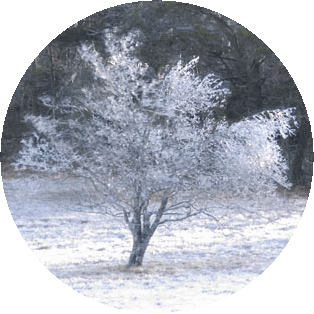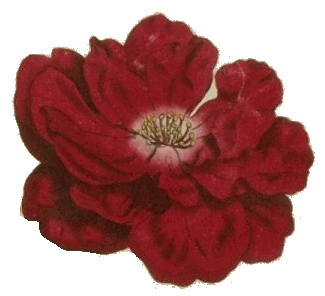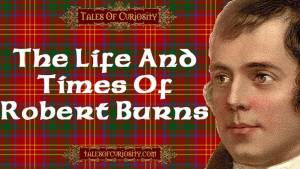| ||||||
| Running Time: | 5:28 | Release Date: | ||||
| As a companion to our video about the life of Robert Burns, we present three of his poems. We begin with 'Winter: Dirge', followed by 'A Red, Red Rose' and finally 'Auld Lang Syne'. | ||||||
About The Video |
Winter: A Dirge |
Written in 1781, "Winter: A Dirge", is one of Robert Burns' earliest compositions. Burns wrote the following notes about the poem:
"As I am what the men of the world, if they knew such a man, would call a whimsical mortal, I have various forms of pleasure and enjoyment which are in a manner peculiar to myself, or some here and there such out-of-the-way person. Such is the peculiar pleasure I take in the season of Winter more than the rest of the year. This, I believe, may be partly owing to my misfortunes giving my mind a melancholy cast; ... "
 |
| Winter: A Dirge |
I The wintry west extends his blast,And hail and rain does blaw; Or the stormy north sends driving forth The blinding sleet and snaw: While, tumbling brown, the burn comes down, And roars frae bank to brae; And bird and beast in covert rest, And pass the heartless day. II The sweeping blast, the sky o'ercast,The joyless winter day Let others fear, to me more dear Than all the pride of May: The tempest's howl, it soothes my soul, My griefs it seems to join; The leafless trees my fancy please, Their fate resembles mine! III Thou Power Supreme, whose mighty schemeThese woes of mine fulfil, Here firm I rest; they must be best, Because they are Thy will! Then all I want-O do Thou grant This one request of mine!- Since to enjoy Thou dost deny, Assist me to resign. |
A Red, Red Rose |
"A Red, Red Rose" is one of the greatest love poems. It is based on a folk version of a song that Robert Burns heard during his travels. It was first published in 1794, in The Scots Musical Museum.
 |
| A Red, Red Rose |
I O, my luve's like a red, red rose,That's newly sprung in June. O, my luve's like the melodie, That's sweetly play'd in tune. II As fair art thou, my bonie lass,So deep in luve am I, And I will luve thee still, my Dear, Till a' the seas gang dry. III Till a' the seas gang dry, my Dear,And the rocks melt wi' the sun! O I will luve thee still, my Dear, While the sands o' life shall run. IV And fare thee weel, my only Luve,And fare thee weel a while! And I will come again, my Luve, Tho' it were ten thousand mile! |
Auld Lang Syne |
Robert Burns' most famous poem, Auld Lang Syne, was written in 1781. The poem is based on a tradition folk song. Burns wrote:
"The following song, an old song, of the olden times, and which has never been in print, nor even in manuscript until I took it down from an old man"
The phrase "Auld Lang Syne" can be variously translated as "old long since", "long long ago", "days gone by" or "old times".
Very soon after the poem's publication, it became popular to sing the poem on New Year's Eve, or as it is called in Scotland, Hogmanay. This tradition gradually spread through much of the world.
 |
| Auld Lang Syne |
I Should auld acquaintance be forgot,And never brought to min'? Should auld acquaintance be forgot, And days o' auld lang syne? Chorus For auld lang syne, my dear,For auld lang syne, We'll tak' a cup' o' kindness yet, For auld lang syne. II We twa hae run about the braes,And pu'd the gowans fine; But we've wandered mony a weary foot Sin auld lang syne. III We twa hae paidl't i' the burn,From mornin' sun till dine; But seas between us braid hae roar'd Sin auld lang syne. IV And here's a hand, my trusty frien',And gie's a hand o' thine; And we'll tak a right guid-willie waught, For auld lang syne. V And surely ye'll be your pint-stoup,And surely I'll be mine; And we'll tak a cup o' kindness yet For auld lang syne. |
Similar Videos |
The Life And Times Of Robert Burns
Interesting Links |
